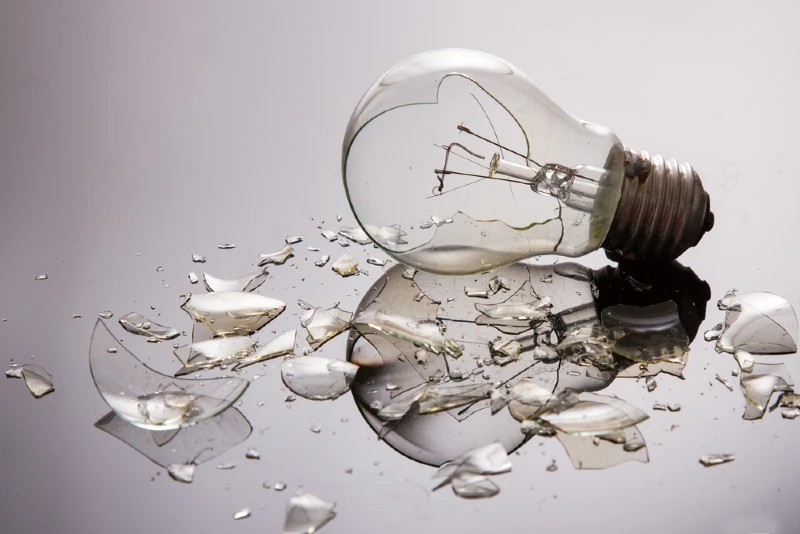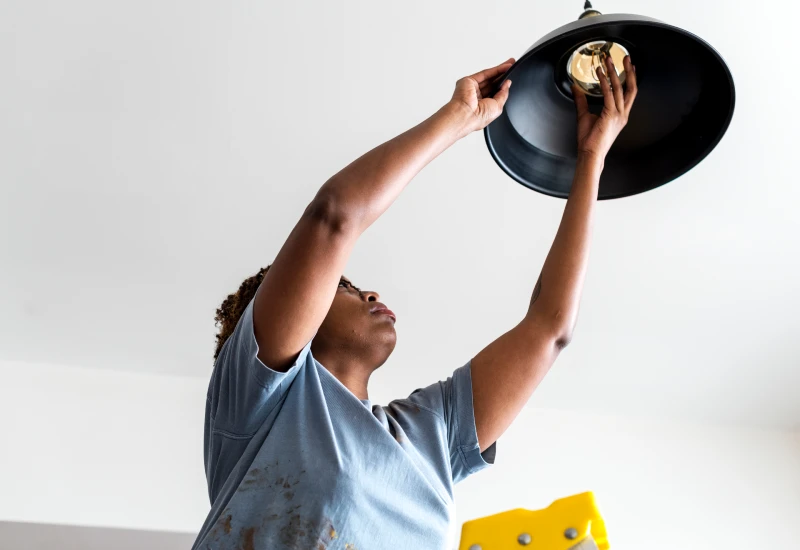Why Do Light Bulbs Explode? The Fascinating Answer!
-
Jana Blagojevic
- Last updated:

If you’ve ever had a light bulb explode in your room, you probably understand how confusing and scary this phenomenon is. If you’d like to learn the many possible reasons behind light bulbs exploding, make sure to read the article below carefully. Before jumping to any conclusions about possible electrical issues, the problem may be as simple as buying the wrong type of light bulb.
How Do Light Bulbs Work?
Light bulbs that are prone to exploding are usually incandescent light bulbs. Before jumping to the possible reasons for this event, it may be necessary to learn how these light bulbs function in the first place. Incandescent light bulbs are the oldest type of bulbs and work using a simple yet effective method. They transport the electrical energy into a tungsten filament, which heats up, producing visible light. The bulb is filled with a specific inert gas, which prolongs the life span of the bulb.
This light bulb is the simplest in form and also the least energy-efficient lighting method.
The 4 Reasons Why Your Light Bulbs May Explode
1. Power Surge
The first possible reason your light bulb may explode is a potential power surge. Simply put, a power surge is a sudden voltage increase in your home electrical circuit. This would mean an overwhelming amount of energy runs through the light bulb, causing it to overheat the filament. The filament can burn out or snap, flying into the glass, and leading to the bulb exploding.
2. Oily Hands
A second, and quite strange reason why a light bulb can explode, is oily hands. When you deal with an incandescent or halogen light bulb, you may leave some oily residue on the bulb. The oils will accumulate over time if you handle the light bulb too frequently. Since incandescent light bulbs heat up to produce light, they can eventually cause the oil to burn. When this hotspot of oil heats up on the light bulb’s surface, it can weaken the integrity of the glass, causing it to snap and explode. One sure way to prevent this is to handle light bulbs with clean hands or gloves.

3. Faulty Parts
While it is not a very common scenario, buying a faulty light bulb can happen. Like all products that are manufactured in factories, mistakes tend to occur, although some are more dangerous than others. The filament, the electrics, the socket, or the glass, can sometimes be defective. There is no way to avoid this or find out the exact issue once the bulb explodes, but you can inspect it before buying it.
4. Wrong Wattage
Each light fixture is designed for a specific type of light bulb. Whether you are looking to equip your ceiling light, table light, or any other lighting, you need to buy a light bulb with a specific wattage rating. The wattage rating is considered to be the maximum amount of power a device should handle. To prevent overheating, make sure always to use the recommended light bulb.

What You Can Do to Prevent This
If you had a situation where your light bulb exploded, it would likely be an issue with the bulb itself, such as a faulty bulb. You may also want to check if you purchased a light bulb matching your device’s wattage. If the problem recurs, there might be issues with the fixtures’ wiring. If your home is a bit older, the fixtures may need to be updated, as their wiring cannot keep up with the innovations, which may cause them to overheat.
If the problem still keeps repeating, or if you don’t feel safe handling it on your own, call a professional and let them run a quick diagnostic.
Conclusion
Exploding light bulbs are scary, and many homeowners have probably had similar encounters and understand how frightening this can seem. Learning the reasons behind this strange occurrence can help you prevent it from happening or know what to do if it does happen in your home. The reasons can vary from a simple mistake of buying the wrong light bulb or using it with oily hands, to problems with electrical wiring. If the situation becomes too serious, it is always best to call a professional.
Featured Image Credit: Alta Oosthuizen, Shutterstock
Contents
